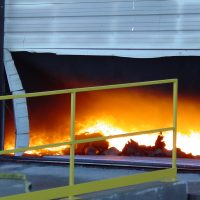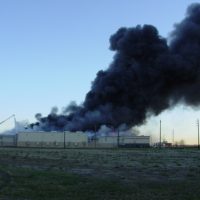In the industrial oven were drums of a chemical that had come sealed from the manufacturer’s plant in India. The chemical is known to emit ignitable vapors, but was being melted at the temperature recommended by the manufacturer.
Fire investigators determined the origin of the fire was in the oven and there was physical evidence of a gas-vapor explosion. Although all drums contained the same product, some drums burned differently and much hotter than others. Testing of the fire debris showed spikes of a highly flammable chemical used during manufacturing that is supposed to be removed before packaging.
The level of contamination could not be determined, but all other causes were ruled out. Both sides had fire experts, forensic chemistry experts and chemical process manufacturing experts.
In the trial court, the jury found the product defective and awarded the Texas company $8.37 million. The trial judge tossed the verdict on the grounds there was no definitive proof of a product defect. The court of appeals reinstated the verdict because the experts reasonably relied upon the known scientific qualities of the product and the evidence of contamination was sufficient.
The Texas Supreme Court sided with the trial court and held that without evidence of the amount of contamination, the proof of a defect was lacking. Hall Maines Lugrin argued this closely-watched appeal on the sufficiency of expert testimony in both the Houston court of appeals and the Texas Supreme Court.


